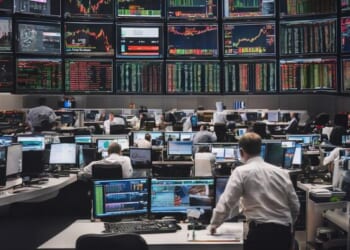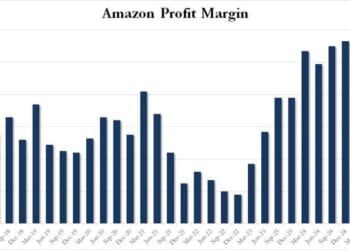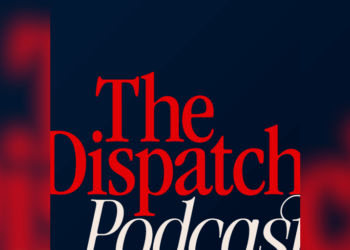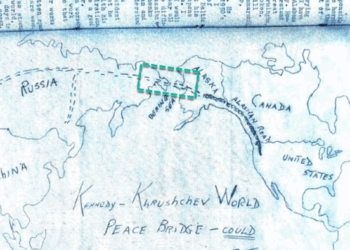I have been visiting China for the last sixteen years, often multiple times a year, sometimes for extended stays. I’ve traveled through big cities, small towns, and remote villages. Over time, I’ve come to see China not through ideology or media narratives, but through direct experience—what I’ve seen, heard, and felt.
Much of what people in the West believe about China is simply untrue. Here is the China I’ve seen: safer than advertised, brutally efficient, less corrupt than it was, and far more pragmatic than our narratives allow.
It amazes me how persistently and deeply people, across the political spectrum, hold negative images of China. I suspect Washington’s propaganda has seeped into the minds not only of leftists and hawks, but even of thoughtful conservatives and libertarians, who often repeat the clichés.
The Chinese are inward-looking and focused, not expansionist or threatening. I’ve found their society more curious than censorious. Contrary to popular perception, many are open-minded, self-critical, and reasonably truthful. Yes, some stay silent when asked about Xi Jinping, the Communist Party, or Tibet, but this is often prudence rather than hostility—caution mixed with openness.
A friend asked if I was ever worried about being arrested in China. Another asked if I had been followed. I doubt it. I’ve been followed in Myanmar and arrested in Zimbabwe for taking forbidden photos. I’ve traveled with insurgents in Laos, spent time alone in Congo, and even traveled with state operatives in North Korea. I can usually tell when I’m being watched.
Once, I decided to walk around a controversial mosque in a small Muslim town in China. An hour later, while I was at a restaurant, police officers—who had failed to trace me to a hotel—arrived and asked for my passport. I declined to show it. Why should I, when I wasn’t crossing a border? The young officer politely explained that while in the US I could refuse to show ID, in China that wasn’t the rule. If I had a Chinese ID, I could show that instead. His training and composure struck me. Eventually, I showed him my passport on my phone. He took a photo and apologized for the trouble.
Ironically, in the statist world we live in, while the encounter wasn’t pleasant in absolute terms, it was no worse—perhaps even milder—than what I’ve experienced in many countries. I have had worse experiences in Canada and Germany.
In China and elsewhere in the Far East, people are careful about publicly voicing political opinions. I have, however, never heard of someone getting a knock at 2 AM, being hooded and taken away by police. More likely, if someone crosses a political line, a quiet call is made from higher up to someone with direct authority over him, to pacify the situation.
Even in North America, if you express certain political views—on race, sex, or other protected topics—you risk being canceled. Indeed, I was disinvited by a Frankfurt-based mining conference for being deemed homophobic and sexist.
While driving near the Golden Triangle—long infamous for drug smuggling—our car was once stopped by police. Despite China’s severe penalties for drug offenses, smugglers still take the risk. I suspect this is because China’s ports and infrastructure are so efficient that the risk–reward calculus shifts. When your logistics ecosystem is as frictionless as China’s, even criminals are tempted.
China has what I consider the most capitalist economy on the planet. Despite the “communist” label, it operates with astonishing efficiency. Transaction costs are minimal, making goods and services cheaper and ever higher quality. It still boggles my mind that China is not a micronation but the manufacturing powerhouse of the world. From your underwear to high-tech equipment, a large share comes from China. Yet many prefer to believe it is a paper tiger. And if they do accept its growth, they often credit it to dictatorship, which makes their claim unfalsifiable.
In much of the Third World, if I want a Western-standard lifestyle, my costs rarely fall to what purchasing power parity suggests; in fact, they often rise. China is a rare exception. I can get Western-quality services for a third of the price—or less. It’s not unusual to pay $50 for a room in a five-star hotel, with full buffet breakfast included, in a tier-3 city. Taxis cost a fraction of their Western counterparts. Banks stay open late and on weekends. The RMB has broadly tracked a basket of currencies—especially the US dollar—and banks offer better deposit rates.
From my earliest visits to China until now, the transformation has been staggering. When I first arrived in Shanghai, I searched for coffee and found only something barely drinkable. Today, not only in Shanghai but even in tier-3 cities, the range and quality of coffee easily surpass what you find in Germany, Switzerland, or France.
Likewise, I once thought Canada had the tastiest fruit. But flying over China, you see miles of greenhouses. The scale and quality of domestic agriculture have improved so quickly that I now think China produces the best fruit anywhere.
The Chinese are keen learners. They absorb new ideas quickly, adapt them, and institutionalize them without backsliding. China keeps ratcheting upward; when they see something worth adopting, it swiftly becomes part of the culture.
One image that’s hardwired in my mind is of an old woman—a janitor—climbing a pole to clean it of dust. No one was watching; she didn’t have to do it. You shouldn’t judge a society by its rich and powerful, but by how the average person behaves.
From what I see, in China, whining, feeling entitled, or holding the victim card gets you nowhere. If you don’t work, from the government’s point of view, you can go hungry. I’m all for that ethic. However, social opprobrium and family support take care of desperate situations and enforce accountability. My guess is that not having to constantly complain about their so-called entitlements makes them less distracted and happier.
Wages rise and fall with economic conditions; given today’s weak economy, don’t be surprised if the government officer you meet in the morning is the one delivering your online order in the afternoon.
Last year, I flew into Shanghai with a domestic connection. My inbound flight was delayed and, with only about twenty minutes until departure, I assumed I’d missed it. To my surprise, someone holding my name met me at the gate. He photographed my boarding pass and, in a blunt—yet efficient—Chinese way, directed me in a direction. A chain of agents had already been alerted; some ushered me ahead of the lines. From the plane door to my next flight—including immigration and customs—I made the connection. What I thought impossible happened because the system worked tightly and efficiently. And I was flying economy, not business class.
Everyday systems function; people are responsive; conveniences are real. China has become extremely safe and I see no religious extremism. If this contradicts Western media narratives, perhaps it’s time to trust direct experience over ideological filters.
I’ve visited Chinese government offices and found them unlike any I’ve seen. Their apparent goal is simple: do the job and let the citizen go quickly. There’s little time wasted on forced pleasantries. When dealing with officials—immigration or police—I want the interaction mechanical and brief, not condescending chitchat. If I can avoid saying hello, I am perfectly fine. Anti-statism is of higher value to me than politeness. In China, that’s exactly what I get.
I have not met a heavy-handed bureaucrat in China—or, for that matter, in Japan, Korea, Singapore, or Hong Kong. I have spent extended time in all these countries. I have yet to encounter the much-talked-about social credit system in China.
I asked recently why city officers no longer aggressively clear illegal street vendors the way they used to. The answer: officers have more productive duties now, and a tacit understanding has developed about where to draw the line. Among people I meet, I sense little fear of the police—one acquaintance is even suing his local police without fear of reprisal.
Pacifists imagine that turning the other cheek can win a civilizational war. In reality, governments function only to the extent people are willing to fight for them—civilization does not exist in nature; you must fight for it. Contrary to popular portrayals, I have witnessed Chinese citizens loudly confronting public officials while officials often calmly listen.
Does China enable the supply of fentanyl to the US? I don’t know. When I asked a successful Chinese businessman, he said he wouldn’t be surprised. Another said he was pretty sure they do. But in many North American cities, you can get a free shot provided by the government. So, while it’s easy to point fingers at China, Western governments fail at what’s within their control.
Yes, Xi declared himself president for life, and I found it repulsive—not only for the act itself, but for the complete absence of visible opposition. Some rivals, it is claimed, were eliminated under the pretext of corruption charges. I am tempted to believe this might have happened. Yet judging political leaders in isolation is futile.
Democracy often brings into power virtue-signalers, demagogues, and incompetents—people who hollow out institutions like termites. Yet these same governments demand China open up to democracy and allow foreign-backed protests. Washington incites pro-democracy movements in Hong Kong and Taiwan. Would it be so outrageous, then, if China responded in kind—engaging in quid pro quo—by turning a blind eye to fentanyl supplies?
What about the freedom of Hong Kong and Taiwan? My best guess is that if figures like Nancy Pelosi hadn’t unnecessarily provoked China, Hong Kong might have remained fully independent. In the months leading up to the protests, I followed them closely and became such an expert that I could predict where the next demonstration would be. At the last one I witnessed, American, Australian, and British flags were everywhere, right outside the Chinese and Hong Kong government offices. While I admired the protesters, I couldn’t imagine any government outside a few Western countries allowing such open dissent.
In my experience, the Chinese are not looking for a fight. They are desperate to improve their economic situation and secure a better future for their children. For a country of its size and military capabilities, China is among the least aggressive. It could have forcefully occupied Macau and Hong Kong long ago but did not. In fact, Portugal had offered to return Macau decades earlier, but China wanted to wait until the lease period was over.
China is also one of the most open countries in the world. Worldwide, visa policies are generally reciprocal though not always with China. Until recently, India had stopped issuing visas to Chinese tourists. China not only issues visas with ease but also gives gifts to Indian visitors. While Chinese citizens must obtain visas to visit Western nations, most Westerners can fly visa-free to China. Citizens of Third World countries may have to apply, but often leave the embassy quickly after arrival, impressed by the efficiency. My guess is that had Trump not made a fuss about tariffs, China would have taken no counteraction.
Fifteen years ago, I had what I thought was an innovative investment idea. China was booming. Macau had outpaced Las Vegas in gambling revenue, not just as a pleasure destination but as a hub for money laundering. Construction was everywhere. China had a reputation for corruption—like every other developing country—and I thought I’d found the perfect money-making machine. I believed that bribe money would continue to flood into casinos and property markets. My clients and I invested. Over the last decade, we lost more than 90% of that money.
When I ask Chinese who are critical of Xi what they think about corruption, they admit they haven’t had to pay a bribe in over a decade. Westerners usually frame the political debate as socialism versus capitalism, and miss the real point. They trot out endless comparisons between Swedish “socialism” and American “capitalism,” as if ideology alone determined prosperity. But there is another, far more decisive dimension of public life: corruption—which is beyond ideology.
Seen from 30,000 feet, the great divide is not between socialism and capitalism but between savagery and civilization.
Corruption makes development impossible. It keeps societies atomized, unstable, predatory, and forever trapped in distrust. If you want a single key to understanding a society’s trajectory, look not at its ideology but at its corruption levels.
Alcohol is inexpensive and widely available, and you can drink in public spaces. As time has passed, people drink less and less, so much so that I have never been to a buffet restaurant that does not offer free-flowing alcohol. This also tells me people are happy and far less stressed.
The Chinese I know no longer drink and drive—not even a sip. Public servants are not allowed to drink at work dinners. I still hear of expensive rice wine—Moutai—being given out as gifts to bureaucrats, then later exchanged for cash at the store.
It has become clear China is developing the rule of law rather than the rule of man.
I can hardly recall an occasion—if any—when I was cheated in China. Two recent encounters only reinforced this impression. At a small tea shop, the owner dissuaded me from buying a variety I had picked, explaining frankly that it would not serve the purpose I wanted. He knew I would never return, yet he chose honesty over profit. At a Huawei store, the agent spent considerable time explaining that the phone I intended to buy might cause trouble with the operating system and apps I planned to use. I walked away without purchasing, but with a clear reminder of how deeply integrity has begun to seep into Chinese society, and how seriously private companies now guard against even the appearance of internal corruption.
Is China mercantilist? Perhaps. Mercantilism gets a bad name because it conflicts with division of labor and free-market principles. Yet thinking strategically—imagining how to produce what you import at home for less, maximizing exports, creating trade surpluses, and investing globally—is what gives you a strategic advantage.
Some dismiss China as merely good at copying. Even if true, copying well is no small feat. If it were easy, Africa and India would be industrial powerhouses.
Ironically, conservatives and libertarians prefer governments to avoid market interference. Yet when China didn’t support its crashing property market, it faced harsh judgment. Corporations lobby governments; we recognize that, but when China curtailed its billionaires, we judged it differently.
Until the late 19th century, Christian moral frameworks ensured social opprobrium for degraded behavior. I don’t want the state morally policing society, but if religious institutions no longer provide that framework, I understand why China enforces certain standards of conduct in public spaces for celebrities. These controls don’t seem to extend into private sexual conduct. Sex toy shops and tattoo parlors are easy to find. And homosexuals seem to go about their lives unhindered, as long as they don’t promote what they do in their bedrooms on the streets.
I’m glad expecting social welfare is looked down upon. I’m glad public displays of genitals in so-called pride parades or the sexualization of children aren’t possible. I’m glad political protests are frowned upon—there is nothing harmless about public protests; they inconvenience people.
China also has among the best ethnic relations I have seen. At least at my level, urban, educated Chinese show no awareness of or concern about others’ ethnicities. Why wouldn’t this be the case when there are no affirmative action policies, and the political system is meritocratic—politicians don’t need to please groups for votes? Those Chinese who do not work for Western companies in Shanghai or other big cities fail to understand the concept of Diversity, Equity, and Inclusion (DEI).
Paradoxically, from a woke Western perspective, Chinese—like Japanese and Koreans—can be very racist. It is this race realism that keeps them homogeneous, increasingly high-trust, and socially stable societies.
The West is the least racist part of the world. I wonder if once people rise to the dimension of truth-seeking and moral absolutes, and as a result grow over their tribalism, they can no longer see it in others. Or is it that it is intellectual laziness and political correctness that made the West give up on race realism?
China has avoided many of the fatal errors that have hollowed out Western societies. It does not glorify single motherhood as a lifestyle choice, nor tolerate drug addiction that corrodes entire communities. Disorder in public spaces is curtailed, not excused as “expression.” Children are not subjected to sexual confusion or exposed to strip shows under the guise of acceptance. Most crucially, China has resisted the Western obsession with diluting national identity through mass immigration. It has no desire to import waves of foreigners to serve as low-wage labor in coffee shops or fast-food chains, nor to hand out citizenship as casually as Canada or Australia.
Society and culture shouldn’t be financialized, and the free market should remain confined to the economic sphere. Compassion and tolerance in the West forgot to demand accountability from their recipients. Liberalism went off course. The free market, which should be contained within the economic sphere, has intruded on culture and society, leading to financialization and corporatization of everything.
For all its discipline and cohesion, China’s rise has not been self-generated. The foundations of its prosperity were laid with extraordinary generosity from the West—above all, the United States—without which its trajectory would look very different. Without the West, nations like Japan, China, and Korea would still be mired in primitive conditions. The spring of humanity and civilization is the West—its unmatched intellectual class, its raw liberty, mental openness, fixation on truth, individuality, and creativity.
Do the Chinese share this craving for the unknown, this near-religious vision of freedom that the West—particularly America—has embodied? I don’t think so. But such a spirit is not necessary for economic growth once science and technology have been imported.
In 2017, a young Chinese student, Shuping Yang, stood at the podium of the University of Maryland and delivered an impassioned speech contrasting the “air” of China and the United States—both in its physical clarity and in its intellectual openness. She praised America’s clean, sweet air, and the freedom to breathe in a society where even controversial ideas could be spoken aloud. The university president, himself Chinese, admitted that she had given voice to some of his own deepest feelings.
The reaction in China, however, was swift and hostile, a reflection of its thinking in tribal terms. Westerners saw this as an affirmation of illiberal China. For me, these two Chinese were a reflection of the sprouting of enlightenment among Chinese.
Since then, China has come a long way. Its cities are cleaner, its society more self-assured, and the suffocating defensiveness that once marked its response to criticism has eased. And yet, the near-religious devotion to truth-seeking—the idea that honesty and dissent are sacred obligations—remains a distinctly Western inheritance.
Think of it as zero-to-one versus one-to-n. Zero-to-one is the realm of original ideas—philosophy, foundational science, and deep creativity in human affairs—born of truth-seeking, universal morality, and reason beyond tribe, race, or religion. This is the West’s gift; without it, the world would have remained destitute and animalistic. One-to-n, by contrast, is China’s domain: once ideas exist, they refine and scale them, often surpassing the West in applied technology—perhaps because they are not “distracted” by zero-to-one.
The reason fewer Chinese seem to be intellectual rebels may lie not in their political system but elsewhere. Like Japan and Korea, China has a very high average IQ with low dispersion. This clustering fosters social harmony and a common purpose.
This also shapes institutions, which are hierarchical. Those expecting American-style equality would be shocked. Such structures suppress creativity and impose strong peer pressure. They become emotionally constipated. That’s why places from Singapore to Korea to China have corrective institutions aimed at teaching innovation and creativity. But these qualities cannot simply be taught; they are absorbed from an environment that encourages original thinking—something nurtured by growing up within a particular culture.
A friend told me his ideal position is one where he has American bosses and Chinese subordinates. American bosses give freedom to operate, respect your views, and treat you as an equal. Chinese subordinates keep their heads down and do their jobs.
China has created centers of excellence. It’s hard to believe, but today Shanghai is likely more innovative than Singapore, in my view, because it has more space, more people, and greater social dynamism. I might even suggest China offers more intellectual breathing room than any other East Asian country. Shenzhen is richer than neighboring Hong Kong. I wouldn’t be surprised if Taiwan eventually wants to join China to benefit from cultural and economic economies of scale.
But it makes no sense to compare China with the United States. A fair comparison would be with Kenya, Uganda, or India—countries that began from a similar baseline. By that measure, China has done extraordinarily well, with no true parallel in human history. It has progressed so much that people now compare it with the United States, often unfairly making it look bad.
Within East Asia, China may now be the most open-minded society—arguably even more so than Singapore. I would not be surprised if true zero-to-one innovation is already taking root. This will only accelerate as high-IQ Westerners begin moving in. Long-term residency has become easier, and as social conflicts inevitably intensify in the West, more of its best talent will likely relocate to China.
I see deep conflicts between Western culture and Islam, and even sharper ones with Hinduism. At the core, I find no real path for the West to work with the Third World—their visions clash, and their societies remain tribal and animalistic. When people from the Third World arrive in the West, they do not assimilate; if anything, they become worse. Assimilation remains a dream. In contrast, I see a genuine symbiosis between China and the United States. I wish they would work together rather than oppose each other—for in this, Washington often acts against the true interests of Americans.
China is here to stay, and its trajectory is upward. In terms of economics and military, China is the next America. There will be no Pax Sinica—the Chinese are too inward-looking. In terms of being the beacon of liberty—and hence of spirituality, creativity, and innovation, that visceral religious vision for humanity—there likely isn’t a next America.













